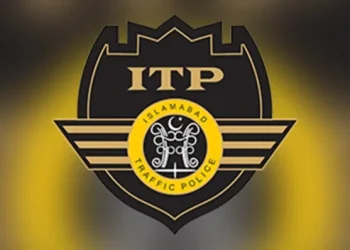By Naveed Siddiqui
ISLAMABAD: Chief Justice of Pakistan (CJP) Qazi Faez Isa has expressed discontent with the report submitted by an inquiry commission formed to investigate the Tehreek-i-Labbaik Pakistan’s (TLP) 2017 Faizabad sit-in. The remarks were made during a Supreme Court hearing, headed by Justice Isa, which was broadcast live on the Supreme Court website and YouTube channel.
The searing judgement authored by Justice Isa in 2019, which instructed penalties for personnel found violating their oath, directed the government to monitor and prosecute those advocating hate, extremism, and terrorism. Adverse observations were made against government departments for causing public inconvenience during the 20-day sit-in.
While review petitions were filed against the verdict by various entities, most petitioners withdrew their pleas, prompting CJP Isa to question the fear of speaking the truth.
Former Pemra chief Absar Alam revealed interference of intelligence agencies and “media coercion” during the sit-in. CJP Isa linked subsequent violence to the non-implementation of the 2019 judgment.
The Supreme Court had instructed the government to finalize a fact-finding probe on the sit-in and granted the Election Commission of Pakistan (ECP) one month to prepare a report on the TLP and its funding.
During the hearing, CJP Isa expressed dismay at the commission’s report, noting its failure to adhere to the Terms of Reference (ToRs). He questioned the absence of TLP members’ statements and criticized the report’s lack of depth.
Contradictory statements within the report and its failure to address incidents like those of May 12, 2007, in Karachi, were also highlighted during the hearing.
The commission, led by retired IG Syed Akhtar Ali Shah, was formed to investigate the causes leading to the sit-in and suggested legislation and SOPs to regulate intelligence agencies’ involvement in civilian matters.
Review petitions from entities like the Intelligence Bureau (IB) and the defence ministry urged the court to set aside adverse observations. The IB petition argued against portraying the agency in an unfavorable light based on vague facts.
The Defence Ministry’s petition highlighted the potential impact on morale due to remarks implying the armed forces’ involvement in politics.
The ECP’s petition emphasized its enforcement of the law and code of conduct, while others like the PTI and AML chief Sheikh Rashid sought to expunge remarks concerning them in the judgment.
CJP Isa’s critique of the Faizabad sit-in probe report underscores ongoing challenges in addressing accountability and transparency in Pakistan’s legal and political landscape



















